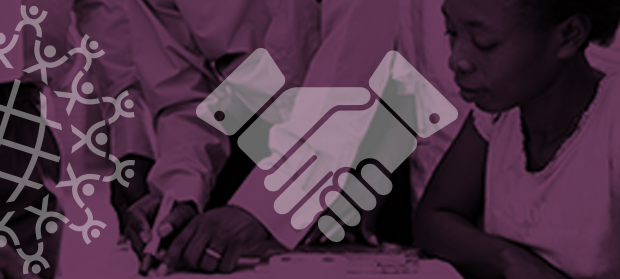Where We Work
See our interactive map



We talked with the director of the WHO’s Health Workforce Department during his visit to North Carolina’s global health belt.
When Jim Campbell of the World Health Organization came to North Carolina this spring, we had a few minutes to pick his brain about some of the health workforce issues that are weighing heaviest on our minds—from the looming global shortage of health workers to what #MeToo and achieving gender equality could mean for the workforce worldwide.
Campbell serves as director of the Health Workforce Department at WHO. He was in North Carolina to talk with partners and collaborating centers in official relations with WHO about workforce issues, the Sustainable Development Goals (SDGs), and global progress toward universal health coverage.
As we work to achieve the SDGs, the WHO is calling on world leaders to commit to taking concrete steps that advance health services for all.
Here’s a bit of our conversation with Campbell:
Campbell: We need to be much more intersectoral. And we know the potential of that, thanks to the work of the UN Secretary-General’s High-Level Commission on Health Employment and Economic Growth and Workforce 2030, which is the first-ever global strategy for the health workforce. So there's a key requirement for outreach to other sectors. Otherwise we are just talking to each other, yet again.
It’s not just about having a conference or a meeting—those conversations should become standard. We've got to make that the new norm. Then what we're offering is a collective discussion around the SDGs, which offers a far more coherent and comprehensive return on investment.
Campbell: The reality is that this a people business. It is people who require access to health care. It is people who provide it. And it is people who provide the governance, stewardship, and financing functions. So there are human elements that come into play. There are the interactions, the trust between people, people’s desires and needs in their careers.
And within all those people dynamics, we've got to bring in the other sectors—which have their own people dynamics.
We have to do better.
For many years now, we just haven't had this broader socio-economic, development, global health perspective as a standard requirement in our conversations. We've got to constructively bring those into our policy processes and dialogue, and learn from some of these other sectors.
Campbell: By 2020, I would love to see us develop a robust base of evidence on how investing in health provides multiple impacts beyond improved health outcomes. To reach that milestone, we need to have the finance, education, labor, and health sectors working collaboratively to redefine the value of investing in health.
And I would like to see as many countries as possible act upon that evidence. It's not always easy to translate evidence into practice, but if we could see a significant movement across different geographical regions where perhaps half a dozen countries take that leadership initiative for the public good, that would be a start.
The world needs an additional 18 million health workers in the next twelve-and-a-half years.
There are two things we need to remember. One is that there is some evidence out there. It may not be perfect, but it is robust enough to initiate these efforts.
The second is that we should continue to support additional context-specific evidence of the return on investments in health care systems and investments in universal health coverage, particularly through this people perspective. We know that for every job created in health care, there will be approximately two additional jobs created in this sector. It is a catalyst for job creation.
Campbell: I am very encouraged by the #MeToo movement, and by the #PayMeToo campaign.
In 2016, we published data from the first major attempt to look at the gendered nature of the health workforce globally, and we provided it to the High-Level Commission on Health Employment and Economic Growth. Health is the biggest employment sector in the world that offers careers and opportunities for women, and the data from that study have had a profound influence on global discussions about gender equality.
There's an awful lot of work still to be done.
At the same time, we see that the terms and conditions of employment, social protection, work environment, health and safety, career opportunities, and a broader gender equity lens in the health workforce are not yet what they should be. There's an awful lot of work still to be done.
The issues of sexual harassment, power, and hierarchies the #MeToo movement addresses, we see those in the health workforce everywhere, in high-income countries, in low- and middle- income countries—those power dynamics, and the abuse of positions of authority in trust, are relevant.
The world needs an additional 18 million health workers in the next twelve-and-a-half years. If we're trying to encourage more and more people into the profession, but we can't provide some basic, underlying principles and guarantees against abuses of the power dynamics in the occupational boundaries that exist, is the health sector a good employer? We have to do better.
Campbell: I worked for many years around the world in refugee camps, with displaced populations and in post-conflict environments. You see there that the basic requirements of all human beings are good health, food, water, safety, security. Those are the very minimum that we should provide to every human being in the world.
And that motivates me. In those environments, you can make an immediate difference to improve the lives of thousands of people who have been affected by a protracted emergency, crisis, displacement, or migration. The impact is tangible and immediate.
The value of working at the global architecture level, which is what I do at WHO, is that immediate commitments to social justice can be translated into policy and governance instruments that, over the next 10 to 15 years, may have a lasting impact on millions of people.
Get the latest updates from the blog and eNews




